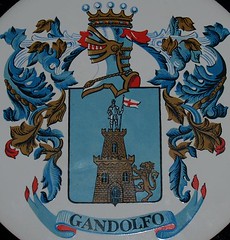RE: Dollar Declines to All-Time Low Against Euro as Economy Slow
From: The Man Common
Date: Apr 28, 2007 9:33 AM
Dollar Declines to All-Time Low Against Euro as Economy Slows
By Min Zeng and Bo Nielsen
April 27 (Bloomberg) -- The dollar dropped to an all-time low against the euro after the U.S. government reported the economy grew at its slowest pace in four years.
The dollar also weakened against most other major currencies, with a Federal Reserve index measuring dollar strength near the lowest level in its 36-year history. Hedge funds and other speculative investors increased bets on the euro's gain to a record for a third straight week.
``The main trend is averse to the dollar,'' said Paul A. Samuelson, professor emeritus of economics at the Massachusetts Institute of Technology and a Nobel Prize winner in economics. ``With the U.S. in moderate slowdown, that's not encouraging foreign savers at the old dollar exchange rate.''
The dollar dropped as low as $1.3681 per euro today, eclipsing the previous record of $1.3666, touched April 25 and first reached Dec. 30, 2004. The euro debuted in January 1999 at about $1.17. The dollar traded at $1.3654 at 4:34 p.m. in New York.
U.S. gross domestic product, the sum of all goods and services produced, grew at an annual rate of 1.3 percent from January through March after a 2.5 percent pace in the fourth quarter, the Commerce Department reported in Washington today.
The dollar has fallen 16 percent against the euro since the European currency's 1999 launch. The dollar has declined 20 percent versus the pound, 36 percent against the Australian currency, 40 percent versus the New Zealand currency and 38 percent against its Canadian counterpart over the same period.
The Federal Reserve's U.S. Trade Weighted Major Currency Dollar Index comparing the dollar with other major currencies dropped to an all-time low of 78.99 on April 25 and is down 1.8 percent this year.
Current-Account Deficit
The current account, a broad definition of trade that includes investment income and transfers, fell to a record deficit of $856.7 billion last year.
``The current account has weakened the dollar for some time, while interest rates supported it,'' said Torsten Slok, an economist in New York at Deutsche Bank AG. ``If rates start to fall relative to other areas, both indicators will point down for the dollar.''
Slok and his colleagues expect the Federal Reserve will lower its target rate for overnight lending between banks to 4.75 percent this year and the dollar will remain weak at $1.36 by the end of the year.
The U.S. currency pared its decline as investors bought back the dollar to limit their losses, said Brian Dolan, research director at Forex.com, a unit of online currency trader Gain Capital in Bedminster, New Jersey.
Bets on Euro
Futures traders increased bets on the euro's gain against the dollar to a record high for a third week, the Washington- based Commodity Futures Trading Commission reported today.
The difference in the number of wagers by hedge funds and other large speculators on an advance in the euro compared with those on a drop -- so-called net longs -- rose 4 percent to 111,282 on April 24, replacing the previous high of 106,770 a week earlier.
The dollar traded at 119.53 yen, rebounding from a low of 118.88 after the Commerce Department released its economic data.
The yen dropped to a record low against the euro after a Japanese government report showed consumer prices dropped last month and the Bank of Japan lowered its forecast for inflation for the 2007-2008 fiscal year.
BOJ Outlook
Investors speculated the BOJ will refrain from boosting interest rates at a faster pace, spurring buying of higher- yielding assets funded by loans in Japan, a practice known as the carry trade. The BOJ kept its benchmark rate unchanged at 0.5 percent, the lowest among major economies.
The Japanese currency fell 0.38 percent to 163.20 per euro and earlier touched an all-time low of 163.24.
A declining dollar is benefiting U.S. companies such as McDonald's Corp., EBay Inc. and 3M Co., whose overseas revenue has increased when expressed in dollar terms.
The U.S. government's views on the currency haven't changed since Treasury Secretary Henry Paulson reiterated his support for a ``strong dollar'' on April 20, said Brookly McLaughlin, Paulson's spokeswoman in Washington.
European Central Bank council member Yves Mersch told the Boersen-Zeitung newspaper on April 25 that German exporters ``can live with the current exchange rate'' and that in a ``monetary union internal adjustment processes are more important than'' external ones.
U.S. Versus Europe
The 13-country euro region's economy grew 2.7 percent last year, the fastest in six years. The region will expand 2.3 percent this year, compared with growth of 2.2 percent in the U.S., according to the International Monetary Fund.
The Fed has held its target rate for overnight lending between banks at 5.25 percent since June, while the European Central Bank raised its benchmark a quarter percentage point to 3.75 percent last month.
To contact the reporters on this story: Min Zeng in New York at mzeng2@bloomberg.net ; Bo Nielsen in New York at bnielsen4@bloomberg.net .



0 Comments:
Post a Comment
<< Home